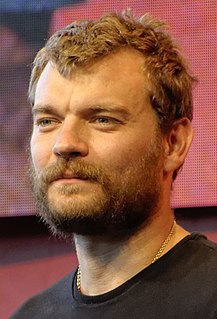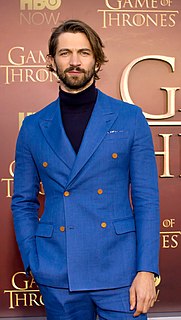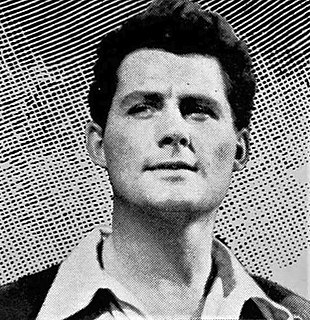A Quote by Nicolas Winding Refn
I always think once you have the lead protagonist, you cast around that character.
Related Quotes
Also, getting the chance to play a supporting part meant that I didn't have to do as much as the protagonist, such as running around telling the story. [As the protagonist] you push the story whereas, paradoxically, as a character part, you have a chance to explore some of the nuance and some of the more complicated aspects of a character.
First person allows deeper insight into the protagonist's character. It allows the reader to identify more fully with the protagonist and to share her world quite intimately. So it suits a story focused on one character's personal journey. However, first person shuts out insights into other characters.
You can relax more when you're playing a silly character than when you're playing a really rigid character. But to be fair, I think George Clooney is a bigger teenager than any of the 'Twilight' cast. He's the guy throwing a football at your head and then hiding around the corner, pretending it wasn't him!






































